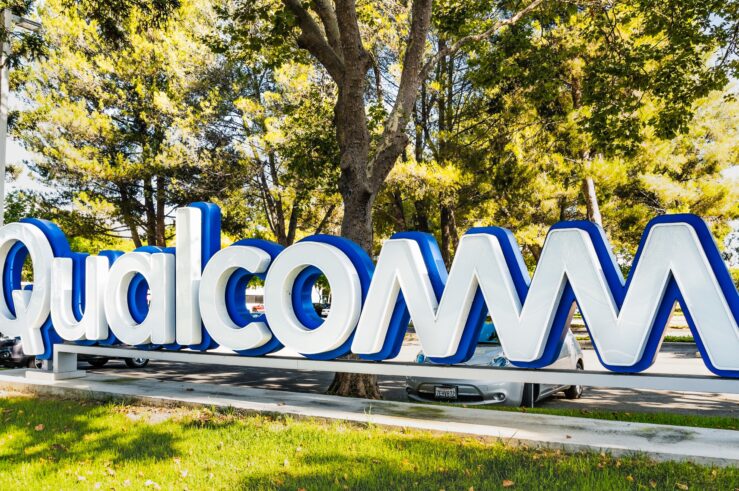Showing archive for: “Monopolization”
The Forgotten Strand of the Anti-Monopoly Tradition in Anglo-American Law
Admirers of the late Supreme Court Justice Louis Brandeis and other antitrust populists often trace the history of American anti-monopoly sentiments from the Founding Era through the Progressive Era’s passage of laws to fight the scourge of 19th century monopolists. For example, Matt Stoller of the American Economic Liberties Project, both in his book Goliath ... The Forgotten Strand of the Anti-Monopoly Tradition in Anglo-American Law
The Antitrust Case Against Google’s Adtech Business, Explained
This week the Senate will hold a hearing into potential anticompetitive conduct by Google in its display advertising business—the “stack” of products that it offers to advertisers seeking to place display ads on third-party websites. It is also widely reported that the Department of Justice is preparing a lawsuit against Google that will likely include ... The Antitrust Case Against Google’s Adtech Business, Explained
Politics Has No Place in Antitrust Enforcement, Left or Right
The goal of US antitrust law is to ensure that competition continues to produce positive results for consumers and the economy in general. We published a letter co-signed by twenty three of the U.S.’s leading economists, legal scholars and practitioners, including one winner of the Nobel Prize in economics (full list of signatories here), to ... Politics Has No Place in Antitrust Enforcement, Left or Right
Making Sense of the Google Android Decision (part 2): Ignoring Google’s Competitors
This is the second in a series of TOTM blog posts discussing the Commission’s recently published Google Android decision (the first post can be found here). It draws on research from a soon-to-be published ICLE white paper. (Left, Android 10 Website; Right, iOS 13 Website) In a previous post, I argued that the Commission failed ... Making Sense of the Google Android Decision (part 2): Ignoring Google’s Competitors
The Real Story about Amazon, Counterfeit Listings, and Minimum Advertised Price (MAP) Policies
These days, lacking a coherent legal theory presents no challenge to the would-be antitrust crusader. In a previous post, we noted how Shaoul Sussman’s predatory pricing claims against Amazon lacked a serious legal foundation. Sussman has returned with a new post, trying to build out his fledgling theory, but fares little better under even casual ... The Real Story about Amazon, Counterfeit Listings, and Minimum Advertised Price (MAP) Policies
The District Court’s FTC v. Qualcomm Decision Rests on Impermissible Inferences and Should Be Reversed
Last week the International Center for Law & Economics (ICLE) and twelve noted law and economics scholars filed an amicus brief in the Ninth Circuit in FTC v. Qualcomm, in support of appellant (Qualcomm) and urging reversal of the district court’s decision. The brief was authored by Geoffrey A. Manne, President & founder of ICLE, and ... The District Court’s FTC v. Qualcomm Decision Rests on Impermissible Inferences and Should Be Reversed
In Apple v Pepper, SCOTUS leaves home without its Amex
It might surprise some readers to learn that we think the Court’s decision today in Apple v. Pepper reaches — superficially — the correct result. But, we hasten to add, the Court’s reasoning (and, for that matter, the dissent’s) is completely wrongheaded. It would be an understatement to say that the Court reached the right ... In Apple v Pepper, SCOTUS leaves home without its Amex
Is Amazon Guilty of Predatory Pricing?
In 2014, Benedict Evans, a venture capitalist at Andreessen Horowitz, wrote “Why Amazon Has No Profits (And Why It Works),” a blog post in which he tried to explain Amazon’s business model. He began with a chart of Amazon’s revenue and net income that has now become (in)famous: Source: Benedict Evans A question inevitably followed ... Is Amazon Guilty of Predatory Pricing?
This Too Shall Pass: Unassailable Monopolies That Were, in Hindsight, Eminently Assailable
[N]ew combinations are, as a rule, embodied, as it were, in new firms which generally do not arise out of the old ones but start producing beside them; … in general it is not the owner of stagecoaches who builds railways. – Joseph Schumpeter, January 1934 Elizabeth Warren wants to break up the tech giants ... This Too Shall Pass: Unassailable Monopolies That Were, in Hindsight, Eminently Assailable
Elizabeth Warren wants to turn the internet into a literal sewer (service)
Near the end of her new proposal to break up Facebook, Google, Amazon, and Apple, Senator Warren asks, “So what would the Internet look like after all these reforms?” It’s a good question, because, as she herself notes, “Twenty-five years ago, Facebook, Google, and Amazon didn’t exist. Now they are among the most valuable and ... Elizabeth Warren wants to turn the internet into a literal sewer (service)
Calling into Question the FTC’s Theory of the Case in FTC v. Qualcomm
This post does not attempt to answer the question of what the court should decide in FTC v. Qualcomm because we do not have access to the information that would allow us to make such a determination. Rather, we focus on economic issues confronting the court by drawing heavily from our writings in this area: ... Calling into Question the FTC’s Theory of the Case in FTC v. Qualcomm
Doing double damage: The German competition authority’s Facebook decision manages to undermine both antitrust and data protection law
The German Bundeskartellamt's Facebook decision is unsound from either a competition or privacy policy perspective, and will only make the fraught privacy/antitrust relationship worse.






